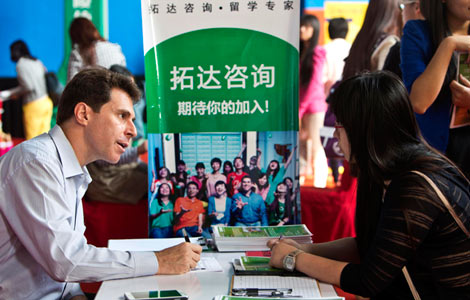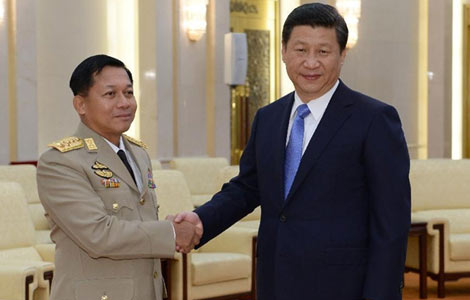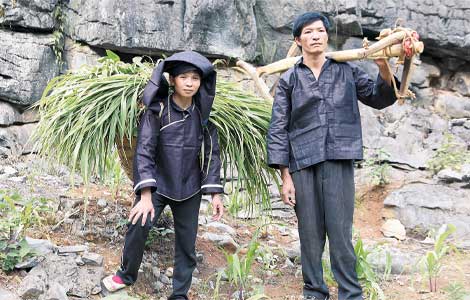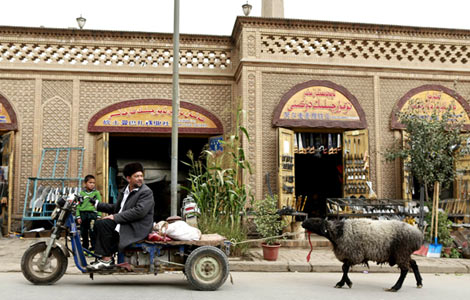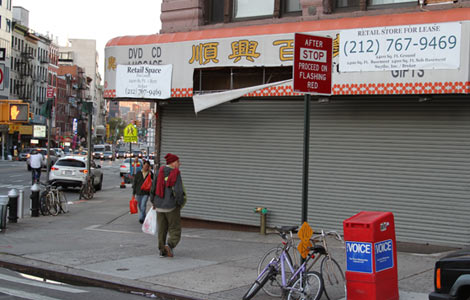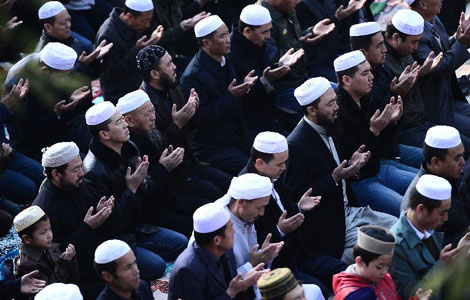A wave of interference
Updated: 2013-10-17 07:24
By Shen Dingli (China Daily USA)
|
||||||||
US should be a responsible power in the Asia-Pacific region and respect regional peace and the maritime rights of others
Leading a responsible nation requires delicate balancing. US President Barack Obama must manage the time he spends on domestic and international politics, so that he does not neglect thorny national issues, or overlook international situations where the United States desires to play an important role.
When a nation's foreign policy is more assertive than its domestic policy, problems can arise. Back in November 2011, Obama told the Australian parliament that "in the Asia-Pacific in the 21st century, the United States of America is all in." Clearly, he has both overstepped and not followed up. But if Obama were able to balance this so-called "pivot" to Asia with domestic concerns, Asia-Pacific nations would welcome the US as a responsible stakeholder in the region. Unfortunately, these days, this is not the case.
In early October, Obama announced he would not be attending the Asia-Pacific Economic Cooperation meeting, the premier gathering of Asian leaders, held on Oct 7-8 in Indonesia. This is not the first time Obama has failed to attend top gatherings of the region's leaders.
Obama appears overwhelmed by domestic problems. He canceled his Asia trip because of the US government shutdown, which arose from his desire to defend "Obamacare," his controversial healthcare program. Promoting universal medical insurance has been part of his party's platform for over half a century.
Republicans may deserve most of the blame for the government shutdown, but as president, Obama shoulders the ultimate responsibility for shaping the nation's agenda and forging consensus so the government does not fall apart. Obama has been pushing the right agenda, but at the wrong time: Obamacare should not be prioritized until the US is able to balance its budget and foster the growth of middle-class income.
Obama's Asia policy suffers from the same excess of ambition and lack of balancing as his healthcare policy. Washington has expressed concern about Chinese vessels conducting economic activity in several Southeast Asian nations' self-proclaimed exclusive economic zones. And the White House worries about China's "assertive" handling of territorial disputes with US allies, including the Diaoyu Islands in the East China Sea which Japan also claims - and Huangyan, a shoal in the South China Sea claimed by the Philippines. By meddling in the Diaoyu Islands dispute, the Obama administration is taking an unbalanced stance in favor of Japan, thus stirring up tensions in East Asia.
Despite the controversies that periodically flair up between China and Japan, both countries' willingness to shelve the long-standing dispute secured four decades of regional peace and stability, ever since the two countries normalized their relationship in 1972. However, by nationalizing the main islands in September 2012, Japan disturbed the status quo and forced China to respond. The US could have checked its ally's incautious and irresponsible behavior. Instead, it encouraged Tokyo: In April, US Defense Secretary Chuck Hagel said the Diaoyu Islands "fall under" the Japan-US Security Treaty, which requires the US to defend Japan.
In the South China Sea, if the US wished to act responsibly it would be building regional consensus based on international law. Ensuring that all Asian nations honor the UN Charter and the UN Convention on the Law of the Sea, which legislates maritime behavior, would be a good start.
But the US has not succeeded in convincing Asia-Pacific nations that these international laws are crucial to their foreign policy. Vietnam, the Philippines, and Malaysia have all tacitly or explicitly admitted Beijing's sovereignty over the islands and islets within the South China Sea's nine-dash line. However, these three countries have all seized some islands and islets on the Chinese side of the nine-dash line. The US has failed to fairly judge the disputes - in fact, once again, it encourages these nations to contest Chinese claims.
And even though the US has not ratified the UNCLOS, it has asked China to allow that convention to govern its maritime behavior. If the US were a responsible actor in the region, it would have ensured everyone plays by the same set of rules.
China is open to working with the Association of Southeast Asian Nations to draw up and implement regional rules. In mid-September, China discussed with ASEAN members a South China Sea Code of Conduct that would help reduce tensions and ensure responsible behavior. And in his keynote speech at the APEC summit, President Xi Jinping emphasized the importance of Asia-Pacific nations working together for their mutual benefit, and indicated a willingness to build regional consensus.
The US pivot to Asia is not unwelcome - but for it to be a responsible and sensible policy, it has to be a balanced one. Otherwise, US action will not only be counterproductive, but too costly for a nation currently mired in a budgetary quandary. No one wants the US to stay away from East Asia - but if it cannot manage the task, perhaps it should stay focused on the problems within its own borders.
The author is associate dean of the Institute of International Studies at Fudan University in Shanghai. www.chinausfocus.com
(China Daily USA 10/17/2013 page11)
Most Viewed
Editor's Picks

|

|

|

|

|

|
Today's Top News
Facebook goes fishing in China
Michigan auto czar leading trade trip to China
Deal reached to avoid US default and open govt
Yuan gains the most in 20 years
Tibet avalanche claims 4
First interprovince subway route opens
US expert finds job 'rewarding'
Trending news across China on Oct 17
US Weekly

|

|
